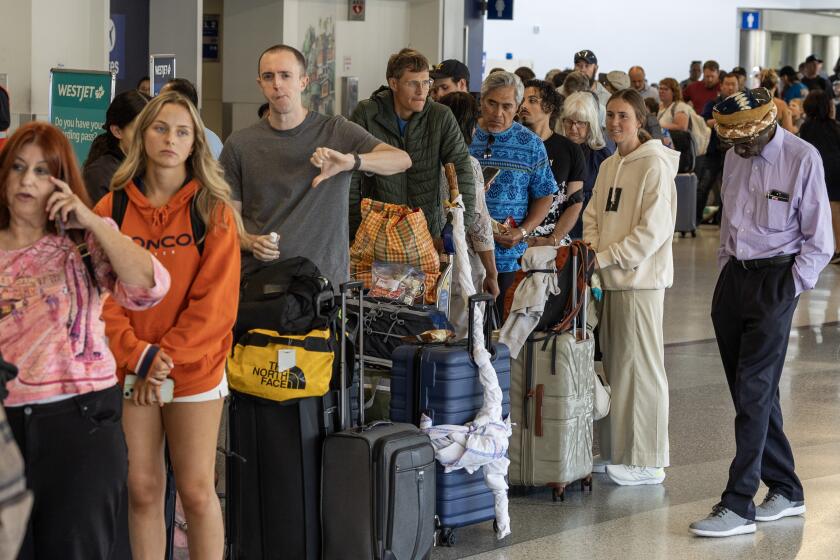Officials Deny Accusations Over Panel Makeup
Mayor Eileen Givens and other officials Wednesday denied accusations that African Americans were kept off a 14-member city task force on hate crimes and Givens said she expects some will be added to the task force later.
“I was aware at the time (the group’s members were chosen) that there was not an African American, and I realized that was a missing component,” Givens said.
“But the idea all along was that this would evolve into a committee of people that would be more and more inclusive. This was never meant to be an exclusive group.”
Givens said race was not the only criteria used in forming the task force, which includes two Latinos, one member of Filipino descent, one of Korean descent, three of Armenian descent and seven other whites.
Among the members are a rabbi, a former head of the Glendale Chamber of Commerce’s cultural exchange committee, an expert on senior citizen issues, and people who have worked on intercultural relations with the local Police Department and school district.
The task force was hurriedly formed by Givens after vandals sprayed anti-Armenian slogans on the headquarters of an Armenian scouting organization in May. Givens said she tried to put together a group that represented Glendale’s ethnic and social groups as best she could, taking recommendations from community leaders.
Tuesday, at the recommendation of the task force, the City Council established a city response team to promote public condemnation of hate crimes, offer counseling to victims and help with graffiti cleanup and property repairs.
The action was condemned by an African American activist, Emzy Veazy III, who excoriated the mayor for not including black representatives on the task force and demanded that a new group be created with black members.
“This city is selective in their categorization of hate crimes,” Veazy said. “The black community is continually excluded from these kinds of concerns.”
African Americans made up less than 2% of the 184,000 population of Glendale in the 1990 census, but their numbers were steadily growing, jumping from 428 in the 1980 census to 2,065 four years ago.
According to the Glendale school district, the number of African American students has roughly doubled in the past 10 years, from about 138 in 1984 to about 340 today. But they are far outnumbered by other minorities, including Armenians and Armenian Americans--of which there are an estimated 40,000 in Glendale--and Asians.
An African American businessman heads the local Junior Chamber of Commerce and an African American woman ran for the Glendale school board two years ago. But some members of the hate crimes task force contend it has no African American member primarily because there are few prominent African Americans in the city.
“It’s a double-edged problem,” said Chahe Keuroghelian, the Police Department’s cultural relations coordinator and a member of the task force.
“On the one hand, the city has not been able to recognize local African American leaders and encourage them to participate. On the other hand, when African Americans are the second-largest victim of hate crimes in the city, you anticipate they will come forward on an issue like this.”
Since 1986, when the city began keeping statistics on crimes perpetrated against people because of race, religion, age, gender or sexual orientation, 59 such incidents have been reported. People of Armenian descent have been the target of 20 such crimes, while African Americans have been the victims of 15.
“When you look at the numbers in Glendale, the African American population is about 2%,” said Herman Sillas, a task force member and a lawyer who specializes in human relations.
“I think the 14 of us were put together as a starting block, but there will be other persons added in the future, including African Americans and other ethnic groups that were excluded,” he said.
Glendale officials said another problem is that there was no precedent dictating how the members of a city-sponsored task force on ethnic relations should be chosen.
More to Read
Sign up for Essential California
The most important California stories and recommendations in your inbox every morning.
You may occasionally receive promotional content from the Los Angeles Times.






